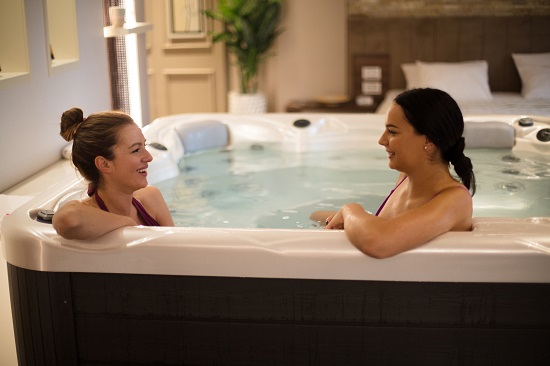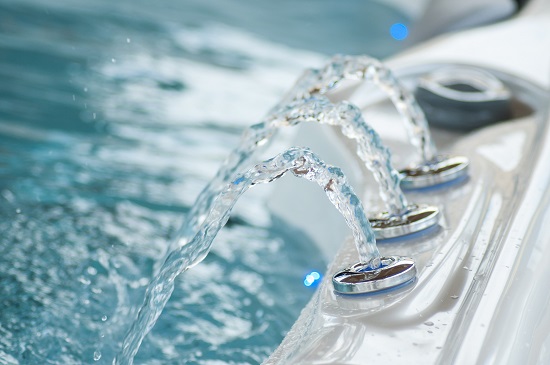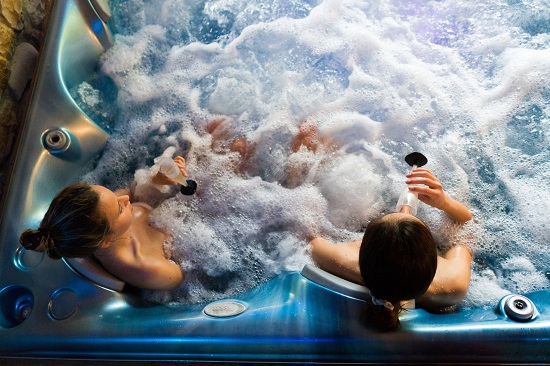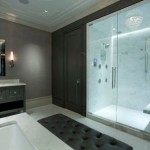Indoor hot tubs have become popular among homeowners looking to create a personal retreat that offers relaxation and rejuvenation within their living space. As interest in this luxurious addition continues to grow, it’s crucial to weigh both the enticing benefits and the potential challenges of installing an indoor hot tub.
This article will provide an in-depth look at some of the advantages and disadvantages of indoor hot tubs so that you can make an informed decision for your home and lifestyle.
Pros Of Indoor Hot Tubs
Indoor hot tubs can transform your home into a personal oasis, providing relaxation, health benefits, and even a potential boost in property value. For those who wish to experience luxury spa treatments without leaving their homes, an indoor hot tub can be the perfect solution.
Accessibility In Any Weather
Regardless of the season or weather conditions outside, an indoor hot tub ensures you have constant access to a rejuvenating soak. There’s no need to worry about freezing temperatures or scorching heat; your indoor hot tub is always available for a soothing session.
Privacy And Relaxation
An indoor hot tub affords a sense of privacy that’s difficult to achieve with outdoor installations. You can enjoy your hot tub sessions without concerns about neighbors or passersby, creating a more intimate and relaxing atmosphere.
Indoor hot tubs not only offer relaxation and comfort, but they also contribute positively to your physical and mental health. The therapeutic qualities of hot tubs can support a healthier lifestyle and improve overall well-being.
Hydrotherapy
Indoor hot tubs offer significant health benefits, one of which is hydrotherapy. The combination of warm water, buoyancy, and jet massage helps to relax muscles, alleviate joint pain, and improve circulation. Regular hydrotherapy sessions can aid in reducing chronic pain, speeding up injury recovery, and enhancing overall health.
Stress Relief And Mental Well-Being
Another health advantage of indoor hot tubs is their ability to promote stress relief and mental well-being. Soaking in a hot tub encourages the release of endorphins, which are natural mood elevators. As a result, regular hot tub sessions can help reduce stress, anxiety, and even symptoms of depression, contributing to a healthier mental state.
Aside from the comfort and health benefits, investing in an indoor hot tub can enhance your home’s appeal, making it a worthwhile consideration for homeowners seeking to add a touch of luxury to their property.
Attractive Amenity For Potential Buyers
A well-designed and maintained hot tub serves as a unique selling point, setting your property apart from others on the market. Many buyers are attracted to homes with luxurious amenities, making an indoor hot tub an appealing feature for those in search of a comfortable and relaxing living space.
Potential For Increased Resale Value
An indoor hot tub can potentially increase the resale value of your home. While the specific increase depends on factors such as location, market demand, and condition of the property, a well-integrated indoor hot tub can contribute to a higher selling price.
It’s wise to weigh the initial investment and ongoing maintenance costs against the potential return on investment when considering an indoor hot tub installation.
Cons Of Indoor Hot Tubs
Despite the numerous benefits associated with indoor hot tubs, it’s essential to carefully consider the potential downsides before deciding to invest in one.
Space Constraints
A primary concern when contemplating the installation of an indoor hot tub is the space it demands. Hot tubs are available in various dimensions, and it’s crucial to ensure you have sufficient space to accommodate the hot tub and the required equipment.
Furthermore, adequate space must be allocated around the hot tub for easy access, cleaning, and upkeep.
Complex Plumbing And Electrical Needs
Installing an indoor hot tub typically entails substantial plumbing and electrical modifications. Hot tubs necessitate a dedicated water source, proper drainage, and a dependable power supply. Consequently, professional assistance is needed to address these installation concerns, which can increase the overall cost.
Furthermore, regular maintenance, such as water treatment and filter replacement, is critical to guarantee the hot tub’s optimal performance and durability.
As with any significant home renovation, it’s essential to assess the financial implications of adding an indoor hot tub. Evaluating the initial investment and ongoing costs will provide a clearer understanding of the total expense.
Initial Investment
The initial cost of an indoor hot tub can be considerable, covering the hot tub’s price, installation fees, plumbing, and electrical work. The initial investment can vary greatly depending on the chosen model, size, and features.
The hot tub itself can range from USD$2,000 to USD$7,000. However, more sophisticated models with additional features and larger dimensions can exceed USD$15,000.
It’s also vital to account for other expenses, such as electrical work, plumbing, and site preparation, which can range from USD$1,000 to USD$5,000 or higher, based on your project’s specific requirements.
Ongoing Expenses
Besides the initial costs, indoor hot tubs entail ongoing expenses, such as electricity consumption, water, and chemicals. Regular heating of the water, pump operation, and maintaining appropriate water chemistry can lead to increased utility bills.
Consulting with a professional will enable you to identify the most efficient solution for your particular situation, ensuring your indoor hot tub’s safety and your long-lasting enjoyment
Conclusion
Integrating an indoor hot tub into your home can be a satisfying and luxurious improvement. Nevertheless, it’s essential to carefully examine the pros and cons in relation to your unique needs and preferences. By considering all aspects of this decision, you can design a customized haven that aligns with your lifestyle and fosters your overall well-being.











